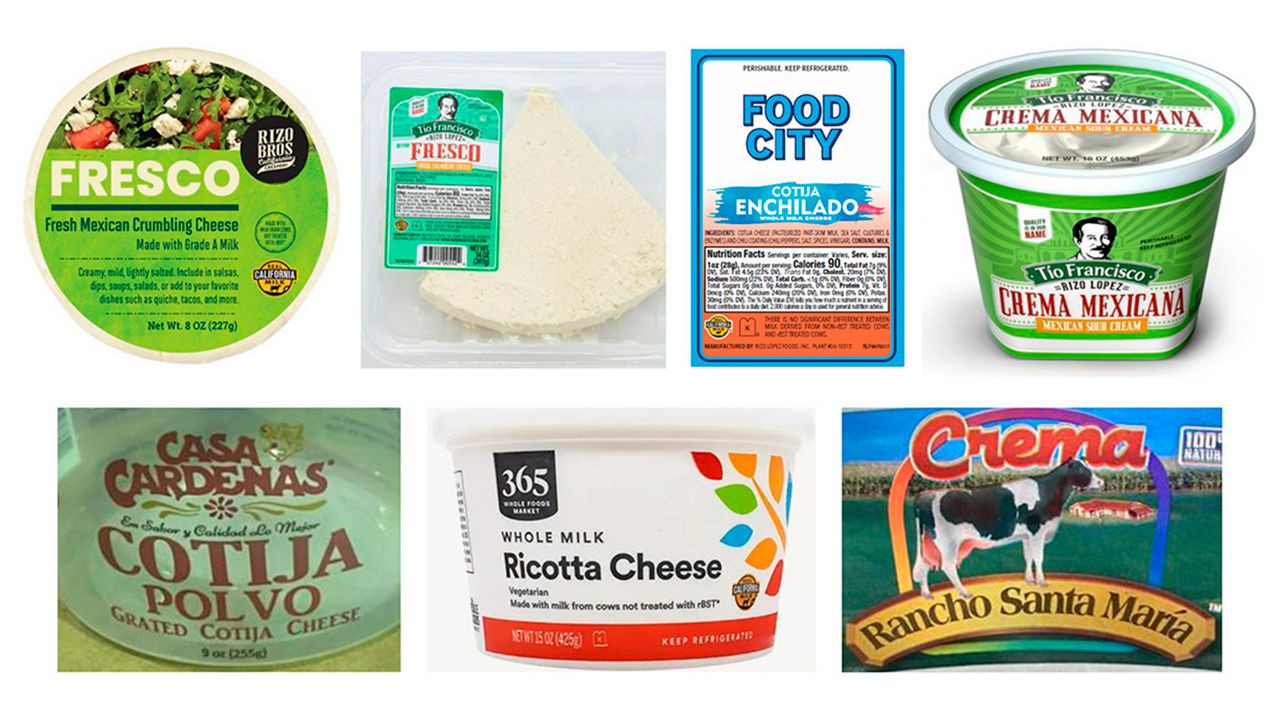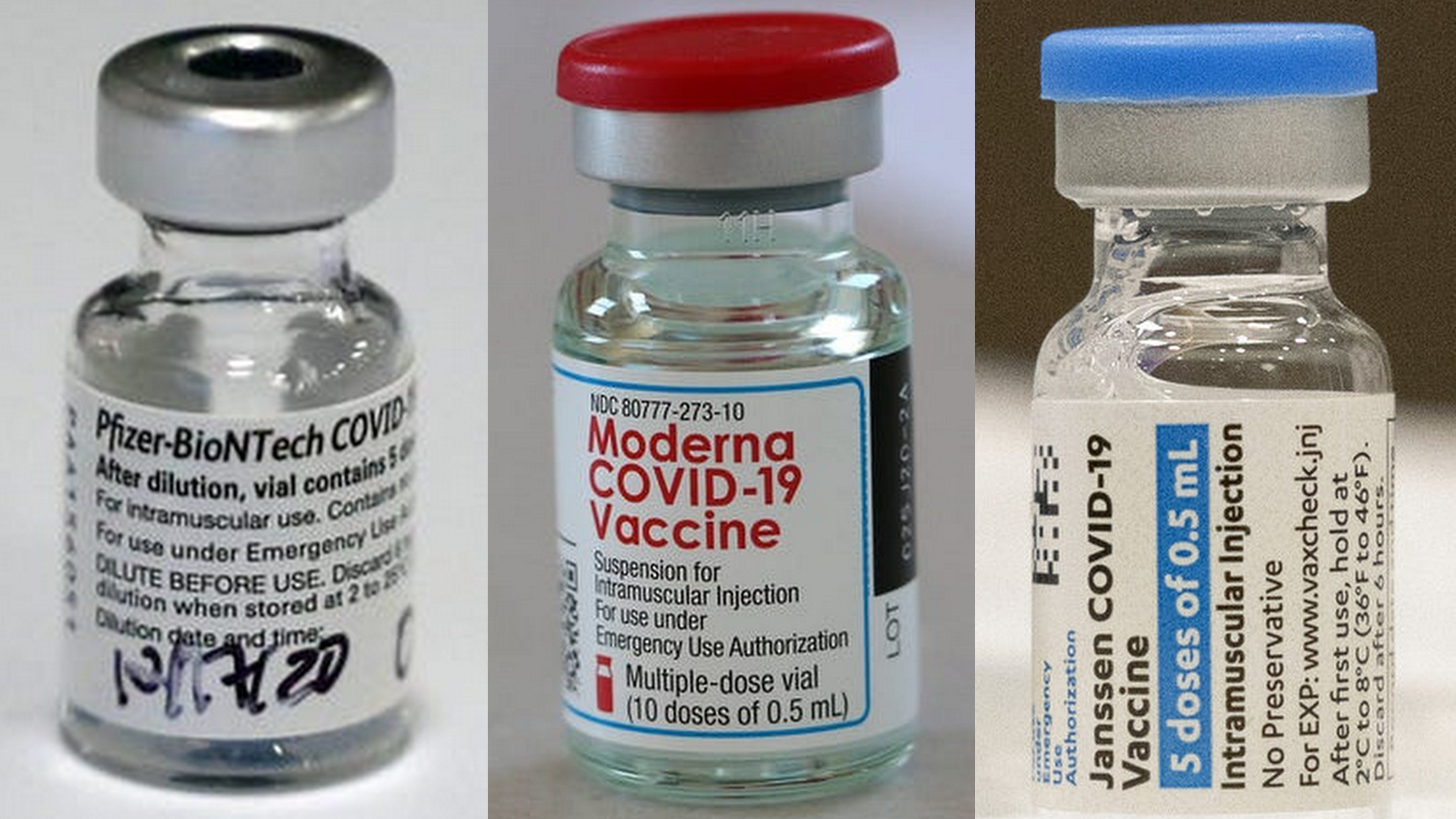A wide variety of brands of beef jelly tongue products have been recalled in Canada because of contamination with Listeria monocytogenes. This recall was triggered by findings by the Canadian Food Inspection Agency during its investigation into a foodborne illness outbreak. There have been reported illnesses associated with the consumption of these products. The Canadian Food Inspection Agency has issued a recall due to possible Listeria contamination for more than a dozen brands of beef jelly tongue products sold in Ontario. The agency issued the warning and recall Saturday, urging people who purchased the potentially contaminated meat to throw it out or return it to where it was bought. The recall affects 13 different brands, and includes beef jelly tongue products that may not have a labeled brand. The food inspection agency says the products that may be contaminated were sold from stores in London, Waterloo, Kitchener and throughout the Greater Toronto Area up until Saturday. The Canadian Food Inspection Agency’s recall affects at least 13 different brands, and includes beef jelly tongue products that may not have a labeled brand. The contaminated products were sold in stores from London, Waterloo, Kitchener and throughout the Greater Toronto Area up until Saturday. The full list of recalled products can be accessed here. The CFIA urged anyone who may have bought the contaminated products to throw them out or return them to where they were bought. The recalling firms are:
Listeria Contamination and Symptoms
Food contaminated with Listeria may not look or smell spoiled, but the inspection agency says it can cause vomiting, nausea, persistent fever, muscle aches, severe headaches and neck stiffness. Listeria poses a significant risk to people who have a weakened immune system, are elderly or are pregnant. Food contaminated with Listeria monocytogenes may appear normal but can still cause illness. Symptoms include vomiting, nausea, persistent fever, muscle aches, severe headache, and neck stiffness. Pregnant women, the elderly, and those with weakened immune systems are at higher risk, which brings on mild, flu-like symptoms. However, the infection can result in premature delivery, newborn infection, or stillbirth. In severe cases, Listeria infection can be fatal.
Summerhill Market Recall
The recall comes days after Toronto Public Health confirmed two cases of listeria in the city and identified listeria monocytogenes, the bacteria responsible for causing the illness, in ready-to-eat deli meat products sold by Summerhill Market. A grocery store in Toronto is responding to reports of Listeria in some of their products. On Oct. 4, the City of Toronto confirmed two cases of Listeria in the city, both linked to the same product purchased at Summerhill Market. “As part of its ongoing investigation, TPH has identified sliced ready-to-eat deli meat products sold by Summerhill Market as testing positive for Listeria monocytogenes, the bacteria responsible for the illness in the cases,” the city confirms in their report. Following the reports, Summerhill Market issued a statement on their Instagram in response. “At Summerhill Market, our commitment to quality and safety is paramount in continuing to provide our customers with food that they can take comfort in serving to their families. We take extensive measures to ensure that food quality and safety are never compromised, and we partner with local suppliers who strive to uphold the highest standards,” they write. “We were extremely concerned to learn that the Beef Tongue in Jelly we purchased from our third-party supplier, in its fully sealed and unsliced state, tested positive for listeria.” In response, “out of an abundance of caution,” they write, Summerhill Market has recalled 26 deli items (you can view the entire list below) from the same supplier as the affected item, which will be marked as packaged at 446 Summerhill Avenue and sold on or before Oct. 3. They note that the majority of their deli meats are processed at their Commissary 129 Railside Road location, thus will not pose a threat.
Listeria Prevention and Treatment
Anyone who has eaten any recalled products and developed symptoms of Listeria infection should seek medical treatment and tell their doctors about the possible Listeria exposure. Also, anyone who has eaten any of the recalled products should monitor themselves for symptoms during the coming weeks because it can take up to 70 days after exposure to Listeria for symptoms of listeriosis to develop. Symptoms of Listeria infection can include vomiting, nausea, persistent fever, muscle aches, severe headache, and neck stiffness. Specific laboratory tests are required to diagnose Listeria infections, which can mimic other illnesses. Pregnant women, the elderly, young children, and people such as cancer patients who have weakened immune systems are particularly at risk of serious illnesses, life-threatening infections, other complications and death. Although infected pregnant women may experience only mild, flu-like symptoms, their infections can lead to premature delivery, infection of the newborn, or even stillbirth. Listeria, caused by Listeria monocytogenes like those found in the product, can cause symptoms such as fever, nausea, cramps, diarrhea, vomiting, headache, constipation and muscle aches, with symptoms appearing anywhere from 3 to 70 days after exposure to contaminated food or drink. If you or someone you know are showing signs of Listeria infection and believe you may have come in contact with contaminated food or drink, the best course of action is to contact your health provider for testing and treatment. Those most at-risk of listeria should avoid foods including ready-to-eat meats, soft cheeses, unpasteurized milk and raw fruits, and vegetables, which are prone to contamination, TPH said. Anyone showing signs of listeria infection should reach out to local health providers for testing and treatment or can contact Toronto Public Health at 416-338-7600.
Staying Safe During the Outbreak
Consumers who have the recalled products in their homes should dispose of them immediately. Anyone who ate the products should watch for symptoms and seek medical attention if they appear, TPH said. Symptoms can start as early as three days or as late as 70 days after eating contaminated food or drink, TPH said. They can include fever, nausea, cramps, diarrhea, vomiting, headache, constipation and muscle aches. TPH said in severe cases, the bacteria can spread to the nervous system and lead to stiff neck, confusion, headache and loss of balance. The warning comes after three Canadians died from a Listeria outbreak traced to plant-based milk earlier this year.
Summerhill Market's Response
In a statement on Friday, Summerhill Market said it was “extremely concerned” when it learned that the beef tongue in jelly, bought from a third-party supplier fully sealed and unsliced, tested positive for listeria. The grocery chain said it recalled all of its products from the supplier as well as products that may have come into contract with the same slicer used for the beef tongue in jelly. Summerhill Market said it has also done a “deep clean” and sanitation of its equipment, racking and areas that may have come into contact with the products. Most of its deli meats are processed at its Commissary 129 Railside Road location, which is unaffected by the recall and has passed all inspections, the grocery chain said. Customers are urged to check this list of recalled items that may have come into the contact with same slicer as the product. The 26 products listed should not be consumed, and it encourages customers to discard them and call for a full refund. “We stand behind all of our current items for sale in our stores, and they are safe for consumption,” Summerhill Market said in the statement. “We will continue to work closely with Toronto Public Health and the Canadian Food Inspection Agency, and we offer our deepest sympathies to our loyal customers and community members who may have encountered compromised products.”
Ongoing Investigation and Safety Measures
TPH’s discovery of listeria was part of an ongoing food safety investigation, where staff have completed an extensive risk assessment, collected samples of the surfaces and food for testing, and ordered a thorough cleaning of the premises and equipment. The affected meat products will have a label indicating they were packaged at 446 Summerhill Ave. TPH said the meat was sold on or before Oct. 3 at 446 Summerhill Avenue, 1054 Mount Pleasant Road, 1014 Bathurst Street, 3609 Dundas Street West, and 3609 Dundas Street West, which are all Summerhill Market locations. The product was also sold in Aurora, Ont. at 32 Wellington St W. A third person has died and 20 cases of listeriosis have been confirmed throughout the country. The McMullens said they “stand behind all of our current items for sale in our stores, they are safe for consumption.” “We will continue to work closely with Toronto Public Health and the Canadian Food Inspection Agency, and we offer our deepest sympathies to our loyal customers and community members who may have encountered compromised products,” they said. Last month, it was found that three listeria deaths were linked to plant-based milks following a Canada-wide recall. Two of the deaths were in Ontario.
Importance of Food Safety and Awareness
This situation serves as a stark reminder of the importance of food safety and awareness. Consumers should always be mindful of potential risks, especially when it comes to ready-to-eat foods that are prone to contamination. The public should remain vigilant and follow any instructions issued by health authorities regarding food recalls. The recall affects 13 different brands, and includes beef jelly tongue products that may not have a labeled brand. The food inspection agency says the products that may be contaminated were sold from stores in London, Waterloo, Kitchener and throughout the Greater Toronto Area up until Saturday. The Canadian Food Inspection Agency’s recall affects at least 13 different brands, and includes beef jelly tongue products that may not have a labeled brand. The contaminated products were sold in stores from London, Waterloo, Kitchener and throughout the Greater Toronto Area up until Saturday. The full list of recalled products can be accessed here. The CFIA urged anyone who may have bought the contaminated products to throw them out or return them to where they were bought. “Food contaminated with listeria monocytogenes may not look or smell spoiled but can still make you sick,” its notice said. Consuming them can cause vomiting, nausea, persistent fever, muscle aches, severe headaches and neck stiffness. Seek medical attention if symptoms appear.
Conclusion: Staying Informed and Taking Action
The Listeria outbreak and recall of beef jelly tongue products highlight the importance of staying informed about food safety and taking precautions. If you have purchased any of the recalled products, it is crucial to dispose of them immediately to prevent potential health risks. This situation is a reminder of the vital role of food safety agencies in protecting public health and ensuring safe food supplies. By working together, we can minimize the impact of foodborne illnesses and maintain a safe food environment for all.


















